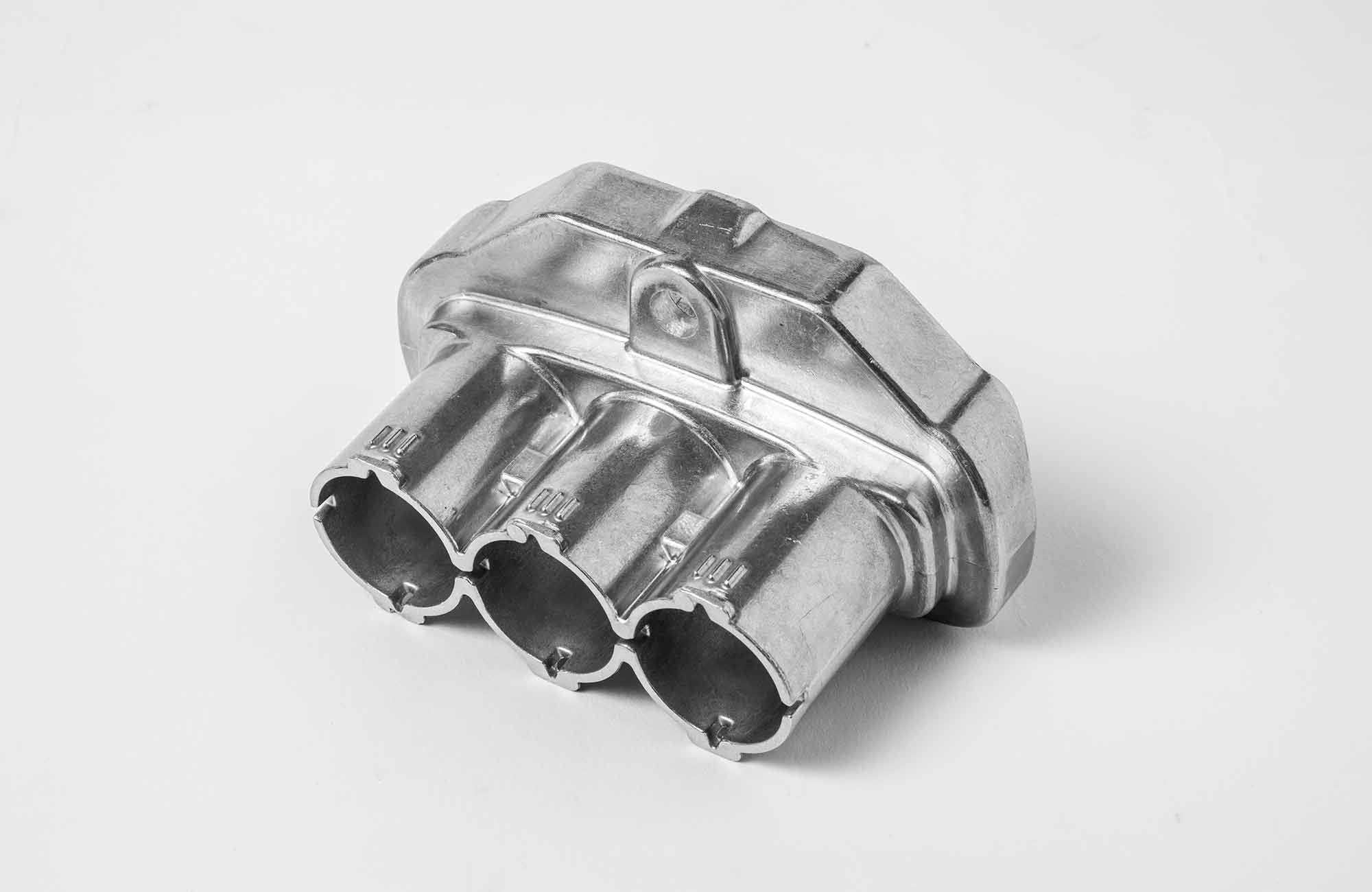Alcast Company Fundamentals Explained
Alcast Company Fundamentals Explained
Blog Article
The smart Trick of Alcast Company That Nobody is Discussing
Table of ContentsRumored Buzz on Alcast CompanyIndicators on Alcast Company You Should KnowAlcast Company Things To Know Before You BuyAlcast Company Fundamentals ExplainedAlcast Company Things To Know Before You BuyAlcast Company Things To Know Before You Buy
Chemical Contrast of Cast Light weight aluminum Alloys Silicon promotes castability by decreasing the alloy's melting temperature level and enhancing fluidity throughout casting. In addition, silicon contributes to the alloy's toughness and wear resistance, making it beneficial in applications where sturdiness is crucial, such as automobile components and engine parts.It also enhances the machinability of the alloy, making it much easier to refine right into completed items. In this means, iron adds to the overall workability of light weight aluminum alloys.
Manganese adds to the strength of aluminum alloys and enhances workability (aluminum casting manufacturer). It is generally used in functioned light weight aluminum items like sheets, extrusions, and accounts. The visibility of manganese aids in the alloy's formability and resistance to splitting during fabrication procedures. Magnesium is a lightweight aspect that provides stamina and effect resistance to light weight aluminum alloys.
The Alcast Company Ideas
Zinc enhances the castability of aluminum alloys and aids control the solidification procedure throughout spreading. It improves the alloy's stamina and firmness.

The primary thermal conductivity, tensile stamina, return strength, and prolongation vary. Among the above alloys, A356 has the highest possible thermal conductivity, and A380 and ADC12 have the most affordable.
Get This Report about Alcast Company

In accuracy casting, 6063 is appropriate for applications where intricate geometries and high-grade surface finishes are extremely important. Examples consist of telecommunication rooms, where the alloy's superior formability enables smooth and aesthetically pleasing styles while maintaining structural stability. Similarly, in the Lights Solutions market, precision-cast 6063 components create classy and efficient lights components that need detailed shapes and great thermal efficiency.
It causes a finer surface area coating and far better deterioration resistance in A360. Additionally, the A360 displays premium prolongation, making it suitable for complex and thin-walled elements. In accuracy spreading applications, A360 is fit for sectors such as Consumer Electronics, Telecommunication, and Power Devices. Its boosted fluidity enables intricate, high-precision parts like smartphone cases and communication tool real estates.
The 4-Minute Rule for Alcast Company
Its special buildings make A360 a useful choice for accuracy spreading in these industries, improving item toughness and top quality. Light weight aluminum alloy 380, or A380, is a widely used casting alloy with several unique characteristics. It provides exceptional castability, making it a perfect option for precision spreading. A380 exhibits excellent fluidness when molten, guaranteeing elaborate and comprehensive mold and mildews are properly reproduced.
In accuracy spreading, light weight aluminum 413 shines in the Customer Electronic Devices and Power Equipment sectors. It's typically utilized to craft elaborate parts like mobile phone real estates, camera bodies, and power tool housings. Its accuracy is amazing, with tight tolerances up to 0.01 mm, guaranteeing remarkable item assembly. This alloy's superior corrosion resistance makes it an outstanding selection for exterior applications, making certain long-lasting, resilient products in the mentioned industries.
Our Alcast Company Diaries
As soon as you have actually determined that the aluminum die casting process appropriates for your project, an essential following step is choosing on the most proper alloy. The aluminum alloy you pick will substantially affect both the casting procedure and the homes of the last product. Because of this, you need to make your decision very carefully and take an enlightened technique.
Identifying one of the most suitable light weight aluminum alloy for your application will certainly indicate considering a wide array of qualities. These relative alloy qualities comply with the North American Die Casting Association's standards, and we've split them into two groups. The initial classification addresses alloy attributes that impact the production procedure. The 2nd covers characteristics influencing the buildings of the last item.
Little Known Facts About Alcast Company.
The alloy you pick for die casting directly influences a number of elements of the spreading process, like just how simple the alloy is to collaborate with and if it is vulnerable to casting problems. Hot breaking, additionally referred to as solidification breaking, is a normal die casting flaw for aluminum alloys that can cause inner or surface-level splits or splits.
Certain aluminum alloys are much more prone to hot breaking than others, and your option needs to consider this. One more click for more typical problem located in the die casting of aluminum is die soldering, which is when the cast adheres to the die wall surfaces and makes ejection difficult. It can harm both the actors and the die, so you must look for alloys with high anti-soldering properties.
Corrosion resistance, which is already a remarkable feature of aluminum, can vary significantly from alloy to alloy and is an essential characteristic to consider depending on the environmental problems your item will certainly be exposed to (aluminum foundry). Put on resistance is one more residential or commercial property generally sought in aluminum products and can distinguish some alloys
Report this page